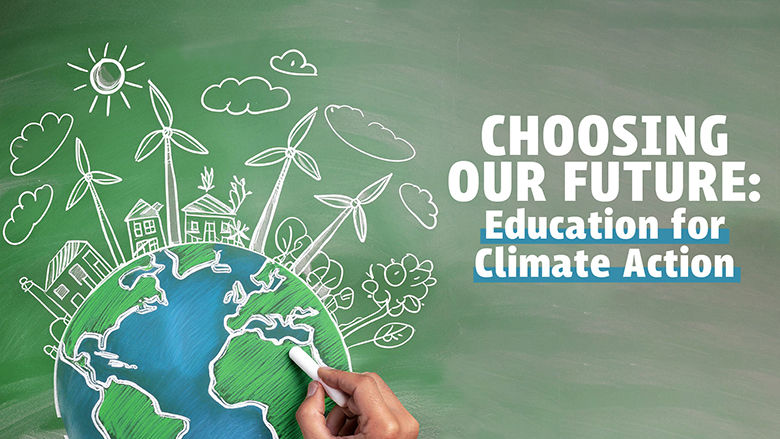In Argentina, the supports services to improve opportunities for unemployed individuals and those in informal work. The program brings together job intermediation, vocational training, and on-the-job learning into an integrated service delivery model, supported by the new Employment Portal. Over 1.8 million individuals and 8,000 firms have registered on the portal, improving job matching and modernizing how services are delivered across national and local levels. In its first two years, more than 470,000 individuals have benefitted from employment services such as labor market orientation, apprenticeships, and vocational training, with early evaluations showing increased formal sector employment.
In Kenya, the reached more than 358,000 young people, supporting them along both wage-employment and entrepreneurship pathways through skills training, business development support, and start-up grants. Among participants, 77% of those completing training and internships secured jobs or became self-employedŌĆöan 18.9 percentage point increase. Likewise, 93% of grant recipients found jobs or became self-employedŌĆöan 18-point increaseŌĆöand reported a 20% rise in incomes. Youth-led enterprises also expanded, creating over 2,700 new jobs, with employment rising by 64% among small-grant recipients and 145% among large-grant recipients, while showing significantly higher rates of business creation and survival.
In Uganda, theprovided vulnerable rural youth with trade training, mentorship, and grants. Four years after the intervention, participantsŌĆÖ earnings were 38% higher. Longer-term impacts included improved household assets, higher rates of skilled employment, and gains in child health. More than 95,000 women received life and business skills training, a $250 productive grant, coaching, and participation in regular savings groups. These interventions increased the likelihood of household business activity by 37%, boosted profits by 63%, and reduced the incidence of hunger by 24%.
In Tonga, the ŌĆödesigned as a Global Skills Partnership (GSP)ŌĆösupports secondary school progression and vocational certifications recognized in Australia and New Zealand, while also assisting low- and semi-skilled workers to access employment overseas. More than 12,000 beneficiariesŌĆöabout 20% of the labor forceŌĆöhave received pre-departure training, enabling them to compete in international labor markets and contribute to national development through remittances and newly acquired skills.
In Indonesia, the is improving access to jobs and skills development nationwide. IndonesiaŌĆÖs LMIS reform aims to address critical skills mismatches and information gaps while increasing employer engagement through enhanced services. By upgrading the SIAPKerja labor market platform, expanding local service units, and modernizing training centers, the project has so far enrolled over 147,000 traineesŌĆöincluding more than 59,000 womenŌĆöby April 2025. Early results show a 30% increase in successful job matches through SIAPKerja, and 75% of CMTC graduates secure employment within six months.
In Bangladesh, the has supported low-income youth and returnee migrants with bundled services tailored to their needs. Activities include career counseling, skills training and apprenticeships, entrepreneurship support, and access to credit and social services. To date, over 531,000 people have benefited from economic inclusion support, 17,222 completed informal apprenticeships, 46,570 young microentrepreneurs received training and microfinance, and more than 180,000 returnee migrants were supported through counseling, referral services, or cash transfers.
In ░š├╝░∙░ņŠ▒▓Ō▒, the has improved employability and labor market access for both Syrian refugees and Turkish citizens. Launched in 2022, the project has reached over 23,000 beneficiariesŌĆömore than 10,000 womenŌĆöthrough counseling and livelihood advisory services. Early results demonstrate enhanced skills, better access to employment opportunities, and improved income prospects, contributing to labor market integration and economic inclusion for vulnerable populations.
In Lebanon, the has enhanced youth employment in the digital and creative sectors. The project identified in-demand skills and job opportunities through a Job Market Digest with 82 companies, built partnerships with 162 employers, and provided training in digital marketing, UI/UX, and career guidance. Through five targeted pilot programs, 1,804 youthŌĆöincluding 57% womenŌĆöreceived training, internships, and soft skills development. Early results show that 91% of participants rated their experience as satisfactory, demonstrating improved labor market prospects and employability.
In Nigeria, the has increased youth employment opportunities and supported vulnerable households. The project strengthened social safety net systems, provided immediate work opportunities for unskilled youth, delivered demand-driven skills training and six-month internships, and implemented targeted cash transfers linked to education and health. To date, 237,937 vulnerable households received grants, 242,632 youth participated in public works programs (59% female), over 182,600 youth received life skills training (61% female), and 28,185 youth graduated from internships, improving employability and income prospects for young people across the country.
Last Updated: Oct 02, 2025






